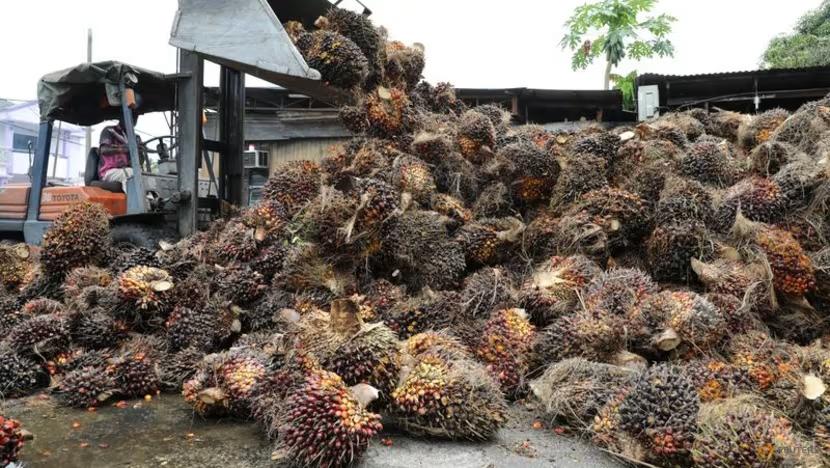Malaysia's Palm Oil Industry Faces Challenges
Kuala Lumpur/Mumbai: Malaysia's palm oil stockpiles experienced a second consecutive month of decline in November, driven by a significant drop in production to its lowest level for the month in four years, according to the Malaysian Palm Oil Board (MPOB) on Tuesday.

This drop in inventories could potentially fuel the ongoing rally in benchmark futures, which are currently near their highest levels in about 2-1/2 years. Malaysia, the world's second-largest palm oil producer after Indonesia, is at the forefront of this trend.
The MPOB reported that Malaysia's palm oil stocks at the end of November fell 2.6% to 1.84 million metric tons from the prior month. Crude palm oil production declined 9.8% in November to 1.62 million tons, marking the lowest for the month since 2020, while palm oil exports plunged 14.7% to 1.49 million tons.
A Reuters survey had forecast inventories at 1.79 million tons, with output seen at 1.69 million tons and exports at 1.52 million tons. The MPOB data for November is slightly bearish for the market, as inventories dropped lower than forecast due to a sharp drop in exports, said Anilkumar Bagani, research head of Mumbai-based vegetable oil broker Sunvin Group.
"Palm oil is struggling to attract fresh buying from destination markets due to its vast premium over competing soyoil," he said. Palm oil usually trades at a discount to soybean oil and sunflower oil, but is currently holding a premium over these competing oils.
Initial reports suggest that production would be lower even in December due to excessive rains, but exports were also low, said a New Delhi-based dealer with a global trade house. The market is also focusing on Indonesia's biodiesel mandate, which is kicking off from January, and could lower exports from the top producer, the dealer said.









Comments